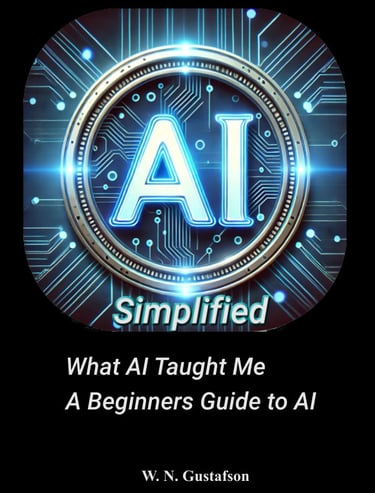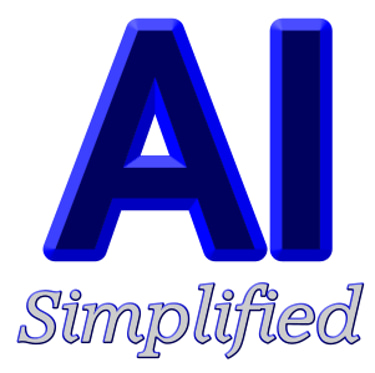AI Simplified – Frequently Asked Questions
Is AI prompting too technical for non-coders?
No. AI prompting is based on natural language and is accessible to anyone who can write or communicate clearly. You don’t need coding knowledge to use it effectively. For example, a simple prompt like “Summarize the benefits of solar energy in one paragraph” is a great starting point. With a bit of practice, you'll be crafting powerful prompts for personal needs, general writing, business, or SEO tasks.
Can I trust AI-generated content to be accurate?
AI can create high-quality content, but it's vital to review and fact-check important details. You can prompt the AI to verify its own information or cite references. There are prompts for this example: “Summarize the pros and cons of solar energy and cite your sources.” AI is a powerful assistant, but responsible users always apply human oversight.
What if my AI prompts don’t produce good results?
Prompt refinement is essential. If you’re not getting the outcome you want, adjust the structure or add clarity. Example: “Write a formal product review comparing product A and product B.” As you gain experience, your results will improve. The world's top businesses use AI daily prompting is a skill worth developing. It is a way to add value to your services.
Is AI prompting just a passing trend?
Not at all. Prompting is becoming a foundational skill in digital communication, SEO, writing, and analysis. With AI’s growing role in personal communication, business and creativity, understanding how to prompt effectively is an essential competitive advantage.
Are there beginner resources to learn AI prompting?
Yes. Visit our Resources page for free and paid tools, step-by-step tutorials, and community guides. AI Simplified offers books such as the Beginners Guide plus PDFs designed for learners at every level, with no prior technical or formal background required.
Is AI fine-tuning only for large companies?
No. With new tools and platforms, even small businesses or individuals can fine-tune models for custom tasks. Whether you're writing personalized emails or launching a niche marketing campaign, AI can be tailored to your needs.
Does fine-tuning require large datasets?
While large datasets offer depth, small, well-chosen datasets can also be effective. Think of fine-tuning as customizing the AI’s tone, style, or accuracy for a specific task like writing job descriptions, product descriptions or reviews.
Can fine-tuning introduce bias?
Yes, if data is unbalanced or questions are framed with assumptions. Use neutral prompts like “Compare the strengths and weaknesses of A and B” rather than “Why is A better than B?” Careful design helps minimize bias. It is explained in more depth in AI Simplified the Beginner to Success version.
Is AI fine-tuning expensive?
Costs have decreased significantly. Many platforms offer affordable fine-tuning tools, and open-source models can be adapted at little to no cost.
Will fine-tuning become obsolete with newer AI models?
No. Fine-tuning complements newer models by letting you adapt general intelligence to your brand voice, industry terms, or task-specific needs.
Will AI-generated content hurt my website SEO?
Not if used responsibly. AI can help create keyword-rich, structured content, but human review ensures it meets search engine guidelines, quality standards and it personalizes the content to the people creating it. The best SEO success requires a balance of AI efficiency and human judgment.
Can AI help me stay ahead in SEO?
Definitely in many ways. AI can track keyword trends, analyze competitors, and optimize content faster than manual research. Used correctly and wisely, it’s your edge in the evolving SEO landscape.
Is AI SEO integration too complex for small businesses?
No. Many AI SEO tools are designed for non-experts. With a basic understanding, small businesses can automate tasks, compete with larger companies, and improve rankings using AI SEO strategies. Used correctly it equalizes the field giving a small company or individual equal footing.
Will AI replace human SEO professionals?
No, it works best when AI handles repetitive tasks and data analysis, but humans bring creativity, ethics, and strategic thinking. Together, they make a powerful team for high-impact effective SEO.
How do I use AI ethically in SEO?
Focus on transparency, helpfulness, and user experience. Ask yourself: “Does this content help the reader?” If the answer is yes, then you're on the right track. Ethical AI starts with thoughtful intention and ends with clear value.


Buy here
support@aisimplifiedwhataitaughtme.com
© 2025. W N Gustafson All rights reserved.
This website and its content are the copyright of W. N. Gustafson . Any redistribution or reproduction of part or all of the contents in any form is prohibited, except with express written permission.
